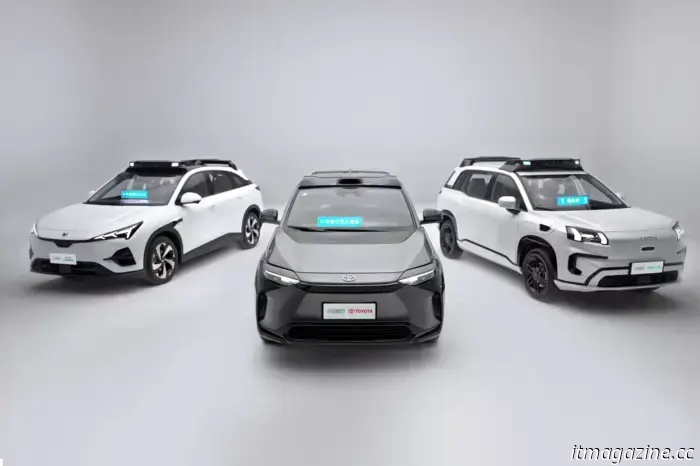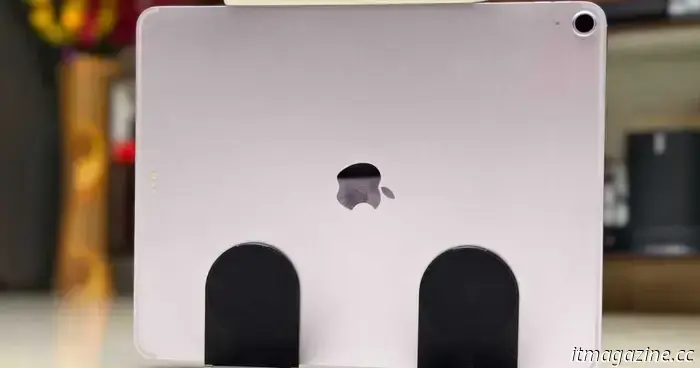
China's Pony.ai, a competitor to Waymo, has reduced the cost of its self-driving technology stack by 70%.
Pony.ai, a robotaxi startup based in China, announced on April 23 that it has reduced the cost of its self-driving hardware and software package by 70%, as it introduced its seventh-generation vehicle for its autonomous ride-hailing service at this year's Shanghai Auto Show. According to Pony.ai's chairman and CEO James Peng, the new robotaxis are priced 20%-30% lower than those from US competitor Waymo, though he did not disclose specific figures. The latest vehicle from Pony.ai is equipped with four NVIDIA DRIVE Orin chips and features a suite of sensors that includes 14 cameras, nine LiDAR sensors, and four radar units. For context, the production costs of a Waymo robotaxi can vary between $100,000 and $200,000, while Chinese tech firm Baidu launched its sixth-generation robotaxi in 2022 at a manufacturing expense of only RMB 250,000 (approximately $34,300), as reported by TechNode. An AION V utilizing Pony.ai's autonomous driving systems was presented at the Shanghai Auto Show on April 23, 2025. The Nasdaq-listed company, backed by Toyota, highlighted the high durability and reliability of its robotaxis, noting that all vehicle components are “mass-produced automotive-grade ones,” which can exceed a 10-year lifespan and endure 600,000 kilometers (372,823 miles), as added by Peng. Pony.ai collaborates with Toyota, GAC, and BAIC for the production of the vehicles and aims to have 1,000 robotaxis operational by the end of this year, with plans to expand its global autonomous ride-hailing fleet to 50,000 cars by 2028. Currently, it operates over 250 robocars and nearly 200 robotrucks, primarily in Beijing, Shanghai, Guangzhou, and Shenzhen. The company raised a total of $413.4 million through its IPO and a concurrent private placement in November, with Uber among the investors, according to Bloomberg.
Jill Shen is a technology reporter based in Shanghai, focusing on Chinese mobility, autonomous vehicles, and electric cars. You can reach her via email at [email protected] or on Twitter @jill_shen_sh.


Other articles
 The 10 best R-rated films currently available for streaming.
From the Oscar-winning Anora to the contemporary classic Parasite, here are the 10 top R-rated films currently available for streaming.
The 10 best R-rated films currently available for streaming.
From the Oscar-winning Anora to the contemporary classic Parasite, here are the 10 top R-rated films currently available for streaming.
 Google's decision to discontinue certain Nest thermostats serves as a cautionary message for all smart home users.
Google has announced a termination update for its first and second generation Nest Learning Thermostats.
Google's decision to discontinue certain Nest thermostats serves as a cautionary message for all smart home users.
Google has announced a termination update for its first and second generation Nest Learning Thermostats.
 My preferred web browser is one that you may have overlooked – and you definitely shouldn’t.
The Opera browser is constructed on the same core as Chrome, yet it provides a variety of unique features that have significantly enhanced my productivity.
My preferred web browser is one that you may have overlooked – and you definitely shouldn’t.
The Opera browser is constructed on the same core as Chrome, yet it provides a variety of unique features that have significantly enhanced my productivity.
 How a $30 accessory transformed my iPad Air into the ideal companion for travel and streaming.
The Rolling Square Edge Pro Core is changing how I use my 13-inch iPad Air, enhancing its portability and user-friendliness.
How a $30 accessory transformed my iPad Air into the ideal companion for travel and streaming.
The Rolling Square Edge Pro Core is changing how I use my 13-inch iPad Air, enhancing its portability and user-friendliness.
 Lossless audio represents a significant improvement, but the cables are somewhat disappointing.
An increasing number of headphones are providing lossless USB audio, but the cables often seem to be an afterthought.
Lossless audio represents a significant improvement, but the cables are somewhat disappointing.
An increasing number of headphones are providing lossless USB audio, but the cables often seem to be an afterthought.
China's Pony.ai, a competitor to Waymo, has reduced the cost of its self-driving technology stack by 70%.
According to CEO James Peng, the latest generation of robotaxis from Pony.ai are priced 20%-30% less than those from its US competitor Alphabet’s self-driving division, Waymo.
